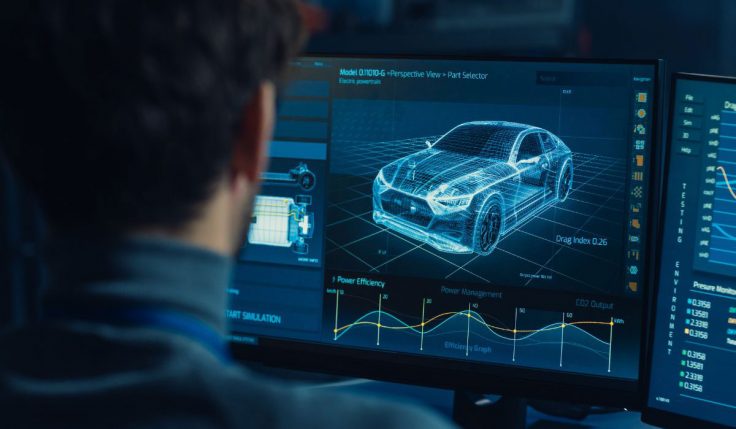In the quest for sustainable and efficient urban environments, the concept of smart cities has gained significant momentum. A smart city uses technology and data to enhance urban management, increase resource efficiency, and enhance the quality of life for its citizens. Among the various disciplines driving this transformative change, electrical engineering stands out. Let’s explore the pivotal role of electrical engineering in the development of smart cities and its impact on shaping our urban future.
Smart Grids and Energy Management
One of the fundamental pillars of a smart city is its energy management system. To create and execute smart grids that enable effective energy distribution, renewable energy integration, and demand-side management, electrical engineering is essential. Through advanced sensors, communication networks, and data analytics, electrical engineers ensure a reliable and sustainable energy supply, reducing carbon footprints and promoting energy conservation in smart cities.
Intelligent Transportation Systems
Efficient transportation is a key component of any smart city. Electrical engineers contribute significantly to the development of intelligent transportation systems that improve traffic flow, enhance public transportation, and optimise mobility. From designing traffic control systems to developing smart traffic lights and implementing vehicle-to-infrastructure communication, electrical engineering expertise is vital in creating safe, efficient, and eco-friendly transportation networks within smart cities.
IoT and Sensor Networks
The infrastructure of smart cities is supported by the Internet of Things (IoT). It connects various devices, sensors, and systems to enable seamless data exchange and analysis. Electrical engineers specialise in designing and deploying IoT networks, ensuring the connectivity and interoperability of diverse devices. Real-time monitoring, data-driven decisions, and effective resource management are made possible by these networks in fields like waste management, environmental monitoring, and public safety.
Smart Buildings and Infrastructure
Electrical engineering plays a central role in transforming traditional buildings into smart, energy-efficient structures. Advanced building automation systems are designed and implemented by electrical engineers who incorporate technologies like smart lighting, energy management, and HVAC systems. These systems optimise energy consumption, enhance occupant comfort, and improve overall building performance, contributing to the sustainability and resilience of smart cities.
Data Analytics and Urban Planning
The proliferation of data in smart cities necessitates effective data management and analysis. Electrical engineers with expertise in data analytics contribute to urban planning and decision-making processes. By analysing vast amounts of data collected from sensors, devices, and systems, they derive valuable insights for optimising resource allocation, predicting trends, and addressing urban challenges. This data-driven approach enhances the efficiency, liveability, and sustainability of smart cities.
Renewable Energy Integration
Smart cities strive to reduce their reliance on fossil fuels and embrace sustainable energy sources. Electrical engineers play a significant role in integrating renewable energy systems into urban infrastructure. They develop and put into practise strategies for effectively integrating energy storage, wind turbines, and solar power into the smart grid. By optimising the generation, distribution, and consumption of renewable energy, electrical engineers contribute to reducing carbon emissions and building a greener future for smart cities.
Cybersecurity and Resilience
As smart cities become more connected and reliant on digital technologies, ensuring cybersecurity and resilience becomes paramount. Electrical engineers are at the forefront of developing secure communication networks, robust infrastructure, and effective cybersecurity measures. They work to safeguard critical systems, protect sensitive data, and mitigate cybersecurity risks. By addressing these challenges, electrical engineers enable smart cities to operate securely and maintain the trust of their residents.
Research and Innovation
Electrical engineering has several potential areas for research and innovation in the context of smart cities. You get the option to research cutting-edge technologies like blockchain, artificial intelligence, and edge computing, as well as their potential uses in smart cities, as a student. You can make a significant impact on ground-breaking discoveries that will influence the development of smart cities by conducting research, working with peers and professionals, and pushing the boundaries of knowledge.
Collaboration and Interdisciplinary Approach
Developing smart cities requires a multidisciplinary approach that involves collaboration among various professionals. To ensure that technology is seamlessly incorporated into urban environments, electrical engineers collaborate closely with urban planners, architects, environmental scientists, and decision-makers. By embracing interdisciplinary collaboration, electrical engineers bring together diverse perspectives and expertise, leading to more holistic and sustainable solutions for smart cities.
Global Impact and Career Opportunities
The role of electrical engineering in the development of smart cities extends beyond borders. There is a global need for experts in this industry due to the rising need for sustainable urban solutions. By pursuing a career in electrical engineering focused on smart cities, you open yourself up to a wide range of opportunities worldwide. Your electrical engineering knowledge and abilities will be in great demand, whether you work for the government, research institutes, technology corporations, or consulting organisations.
Also, read: How Electrical Engineering Is Taking India by Storm
As an aspiring electrical engineer, you are embarking on a journey that can shape the future of urban living. The role of electrical engineering in the development of smart cities is pivotal, driving advancements in energy management, transportation systems, IoT networks, smart buildings, and data analytics. You may aid in creating sustainable, resilient, and liveable cities for future generations by utilising your abilities in this dynamic profession. Embrace the opportunities that lie ahead, and let your passion for electrical engineering be the catalyst for transforming our cities into smart urban hubs of the future.






